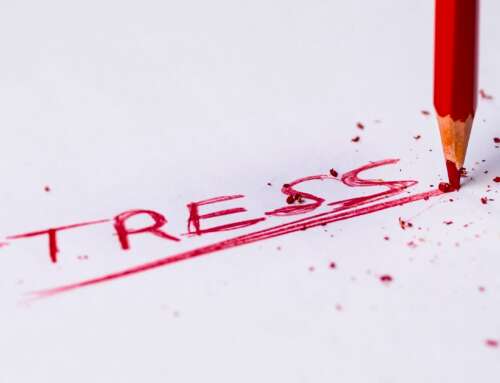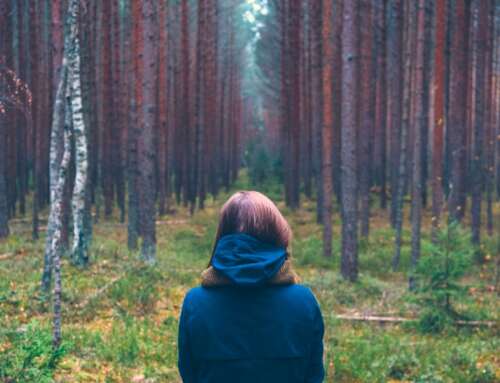Self-isolation in religious traditions is in many ways about practising self-restraint and withdrawing from the ills of society.
Fasting during Ramadan, Good Friday or Lent are exercises in self-restraint.
Extreme forms of the self-isolation tradition are found in the lives of hermits, sages or, in the case of Russian Orthodox Church, poustiniks.
These individuals are called to a life or period ‘in the desert’ alone with their God, where they can reflect, pray, fast – enabling them to provide advice and help to those who may call on them.
Examples of these historical forms of self-isolation range across many cultures including China, Thailand, Sri Lanka, India, Europe, and across religions like Christianity, Judaism, Hinduism, Islam, and Taoism.
A key element of the retreat to self-isolation is the idea of allowing ourselves to become vulnerable in anticipation of gaining new insights about ourselves and circumstances, and appreciating the challenges and joys these bring.
In a secular sense, when we self-isolate we experience the same thing – we become vulnerable, we often reflect on the immediate situation and ourselves, and we experience new ways of seeing ourselves and the world.
These experiences can be, for some, very pleasing, enriching and enlightening.
For others the insights can be disturbing, possibly prompting feelings of regret or fear for the future. So being mentally and psychologically prepared for self-isolation can be helpful.
Here are a few key points to think about while many of us are in self-isolation. It comes from our research on being connected and may help in dealing with the psychology of self-isolation.
We are always connected; we are never alone.
Even hermits self-isolate in the hope of gaining a greater connection either with a God or with humanity, or even, like St Francis of Assisi, with nature itself.
If negative things come up – we need to attend to them but we also need to stay in the moment and celebrate the small things of life; recall the positive aspects of life and plan for more in future.
We need to accept that being alone doesn’t mean we need to be lonely.
We should build routines that allow us to relate to and attend to other people – through our phones, social networking sites, video conferencing, chatting over the fence or balcony – so that we can continue to connect in meaningful ways.
We should also pay attention to symbolic and special events that we cherish, like birthdays (even if they are deferred for the time being, we can open a discussion about these important events with others, during isolation).
We belong
We need to remember that many people are in the same situation and we can draw strength from this identification.
Our families and our local communities, along with our memories of these can be very consoling and strength giving. They will be experiencing similar things even if physically sharing the experience is limited.
Actively engage
It is helpful to focus on the future and commit to positive social action, respecting others in our present and being more mindful of others as we plan positively for our future.
We can connect with and share with others in our immediate community who aren’t dealing well with self-isolation. We can continue to contribute to shared experiences through online contact, like e-projects and building collaborative networks.
This activity allows us to create a sense of positive social engagement and hope; building solidarity in a shared, global experience – even if it is a difficult one.
Plan very positive experiences
Self-reflection and restraint should be enjoyable and not an exercise in martyrdom.
We can challenge ourselves to adopt new behaviours that we can practice over the period of self-isolation in response to some reflection and insights.
For example, we can focus on and take pleasure in smaller tasks at home. Living in a smaller physical world doesn’t limit our psychological, emotional, cognitive or imaginative abilities.
Seek help
Any period of withdrawal whether voluntary, like entering a religious retreat, or enforced, like the need to recover after surgery or illness, will prompt self-reflection and sometimes these insights can be disturbing.
Most of us have psychological and mental mechanisms to deal with disturbing thoughts and emotions, like remembering actions we are proud of that reinforce our self-worth.
Most of us can deal with these things by talking them through with family and friends – making meaning of the experiences and insights. But sometimes these thoughts may appear overwhelming, which in a religious context is often described as the ‘dark night of the soul.’
It isn’t unusual to sometimes feel overwhelmed, but if you are struggling the best thing to do is to reach out and get some help either through a tele-counsellor, tele-psychologist, tele-minister or a tele-doctor.
Staying connected with ourselves and those in our immediate community and families, as well as building solidarity with broader communities, are reassuring ways to realign ourselves and renew ourselves at times like these.
Even if the old rhythms of life aren’t re-established, new rhythms of life will eventually emerge. And given the adaptability of humanity, it will be okay if we spend some time out working through the issues of the present.
If you or anyone you know needs help or support, you can call Lifeline on 13 11 14.
This article was first published on Pursuit. Read the original article.
Feature image source: Pixabay







Leave A Comment